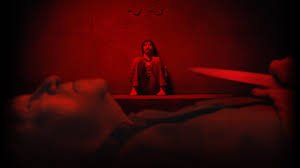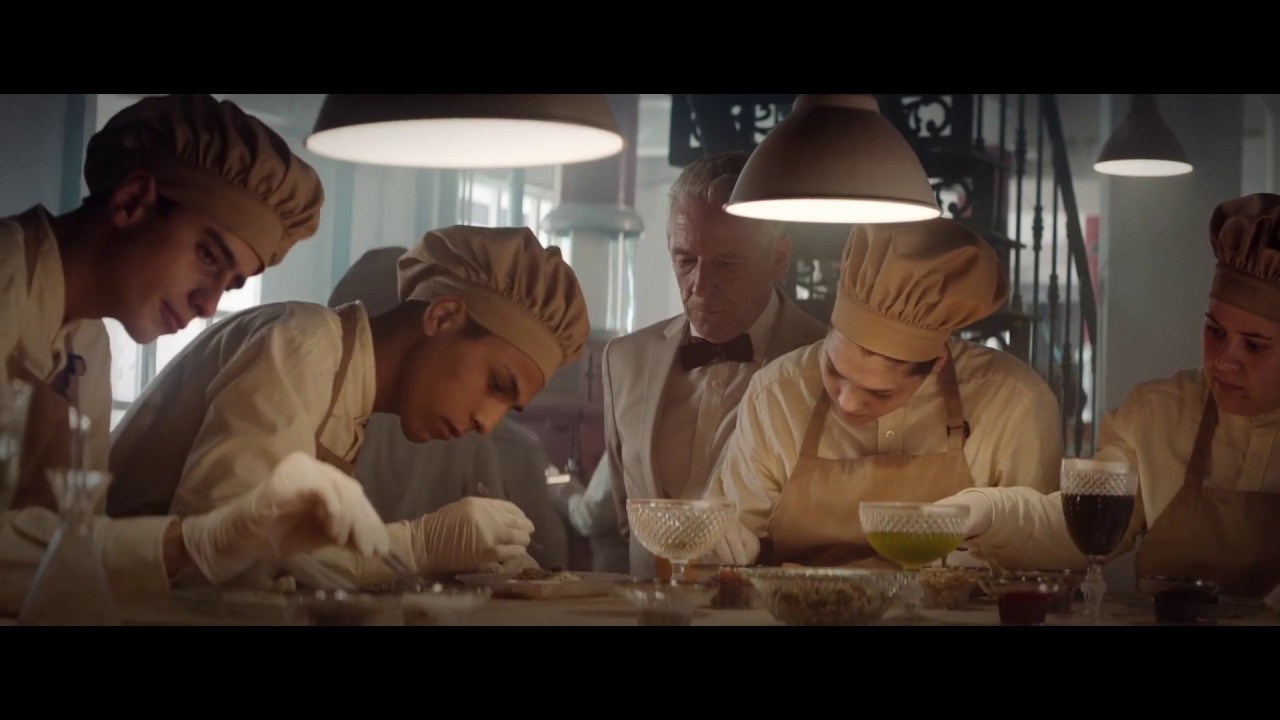🎬 The Platform (2019)

The Platform (2019) – A Dystopian Allegory That Strikes a Chord
The Platform (El Hoyo in Spanish) is a 2019 Spanish sci-fi horror film directed by Galder Gaztelu-Urrutia. This gripping and thought-provoking movie takes place in a dystopian prison where inmates are housed in a vertical tower, with food being distributed from top to bottom. What starts as a simple yet sinister premise quickly evolves into a harrowing social commentary on class struggle, human nature, and survival. With its intense narrative, striking cinematography, and chilling performances, The Platform delivers a hard-hitting message wrapped in a nightmarish vision.
Plot Summary: A Descent into Madness
The film introduces us to Goreng (Iván Massagué), a man who voluntarily enters “The Pit” in exchange for a diploma. He wakes up on Level 48 alongside his cellmate, Trimagasi (Zorion Eguileor), an older, cynical man who has spent time in the system and understands its brutal mechanics. Each day, a platform laden with food descends from above, but by the time it reaches the lower levels, there is barely anything left. The platform stops for a short period, allowing prisoners to eat whatever they can before moving downward. Every month, the inmates are randomly reassigned to a new level, which means one’s fate can shift dramatically from privilege to desperation overnight.
As Goreng’s journey continues, he meets other prisoners, including Imoguiri (Antonia San Juan), a former system administrator who naively believes in fairness, and Baharat (Emilio Buale), a man determined to climb to the top. As the story unfolds, Goreng begins to question the system, morality, and whether real change is even possible in such a broken hierarchy.
Themes and Symbolism: A Reflection of Society
At its core, The Platform is a searing critique of wealth inequality and social stratification. The tower itself is an allegory for economic disparity, where the privileged feast while those below suffer. The platform serves as a literal representation of trickle-down economics, showing the failures of a system where the powerful hoard resources, leaving those at the bottom to fend for scraps.
Another key theme is human nature. Trimagasi, for instance, embodies survival instincts, arguing that those in power will always exploit the weak. Goreng, on the other hand, represents idealism, constantly struggling with the moral dilemma of whether cooperation and fairness can exist in such a brutal environment.
Religious allegory also plays a significant role in the film. Goreng can be seen as a Christ-like figure, enduring suffering and ultimately seeking to deliver a message of hope. The film’s ending, which involves a mysterious child and a symbolic “message” being sent to the top, invites interpretation and debate, leaving audiences questioning whether change is truly possible in a corrupt system.
Cinematography and Atmosphere: A Claustrophobic Nightmare
Gaztelu-Urrutia masterfully crafts an oppressive and suffocating atmosphere throughout the film. The stark, minimalist production design makes the prison feel cold and dehumanizing. The cinematography by Jon D. Domínguez enhances the sense of dread with tight, confined shots and an eerie color palette dominated by grays and shadows.
The use of lighting is particularly striking—bright at the top, gradually dimming as the levels descend, mirroring the descent into despair. The brutality of the system is reinforced by visceral, often grotesque imagery, from the way prisoners devour food like animals to the scenes of violence and cannibalism that highlight the depths of desperation.
Performances: Powerhouse Acting that Elevates the Story
Iván Massagué delivers a compelling performance as Goreng, capturing his character’s gradual transformation from hopeful participant to broken revolutionary. His expressive face and nuanced portrayal make his internal struggle feel palpable.
Zorion Eguileor steals the show as Trimagasi, bringing a disturbing yet darkly humorous energy to the film. His character’s pragmatic yet ruthless survival mentality provides a stark contrast to Goreng’s idealism, making their dynamic both tense and fascinating.
Antonia San Juan’s portrayal of Imoguiri adds another layer of complexity, serving as a voice of the establishment that slowly comes to realize the system’s flaws. Emilio Buale’s Baharat injects a much-needed sense of determination and hope, making his arc both inspiring and tragic.
Ending Explained: A Message for the Audience
The ambiguous ending of The Platform has sparked intense debate. Goreng and Baharat devise a plan to distribute food fairly as the platform descends, hoping to send a message to the top that change is possible. They decide to send an untouched dish—a panna cotta—as proof of solidarity and resistance. However, upon reaching the lowest level, they find a young girl, presumably the only true innocent in the system.
Realizing that she, not the food, is the real message, Goreng sacrifices himself, letting her ascend alone. Whether the girl reaches the top or whether the message is understood remains unknown. The ending leaves us questioning whether systemic change can ever be achieved or if those in power will simply ignore the suffering below.
The Platform’s Relevance in Today’s World
Despite being a dystopian horror film, The Platform resonates deeply with real-world issues. The COVID-19 pandemic, economic crises, and global disparities in wealth distribution make the film feel eerily relevant. The way resources are hoarded at the top while those below struggle to survive mirrors real-world injustices, making the film’s message all the more urgent.
Moreover, the film forces us to confront difficult ethical questions. If we were in a position of privilege, would we share, or would we take as much as possible for ourselves? If we were at the bottom, how far would we go to survive? These uncomfortable dilemmas make The Platform a film that lingers in the mind long after the credits roll.
Conclusion: A Disturbing Yet Essential Watch
The Platform is not an easy film to watch—it’s brutal, unsettling, and deeply thought-provoking. But that’s precisely what makes it so powerful. It blends horror, thriller, and philosophical inquiry into a gripping narrative that forces viewers to examine society, morality, and their own place within a broken system.
With its brilliant performances, masterful direction, and layered symbolism, The Platform stands as one of the most memorable dystopian films of recent years. It’s a stark reminder that change can only happen when those at the top acknowledge the suffering below. Whether or not that message will ever be received, however, remains an open question.
Final Verdict: 4.5/5 Stars ⭐⭐⭐⭐✨
If you enjoy intense psychological thrillers with deep social commentary, The Platform is a must-watch. Just be prepared for an unsettling experience that challenges your worldview.